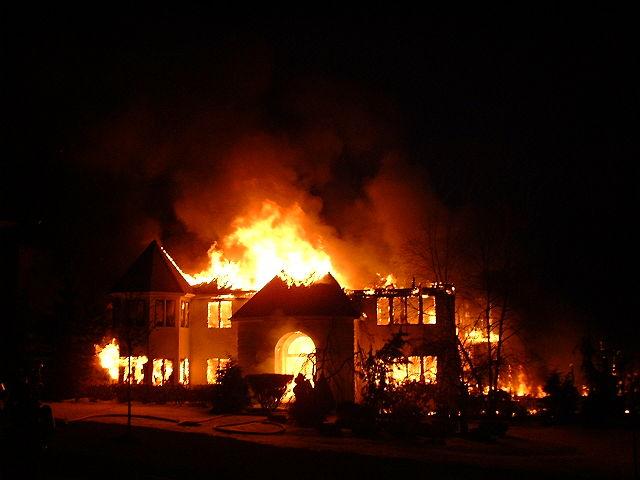Cautionary Tales

WHY DO CAUTIONARY TALES MAKE US COMFORTABLE?
Today alone I’ve read these stories on electrical fires:
Laptop: A Melbourne home burnt down due to a plugged in laptop. The lithium battery inside the laptop overheated and sparked a fire inside the home. Investigation found the laptop had been left on continuous charge while it was plugged into a television for use as an external hard drive. 20 firefighters were needed.
Electric blanket: An elderly man passed away from smoke inhalation, after the electric blanket he would wrap himself in caused the chair to catch fire. “Fortunately” the man passed away from the smoke inhalation.
Lawnmower: A home garage caught fire after the battery within the homeowner’s lawnmower was determined to be faulty. No one was home, but the fire caused more than $20,000 damage.
Frankly it’s amazing that it’s our human nature to read these stories and move on without giving much thought afterwards. Sometimes it’s just bad luck, but only sometimes. The above describes just a few everyday household items, yet our human conditioning to think “yeah but it doesn’t happen to me” gets in our way of doing the right thing even if our lives or homes are at stake. Is it complacency? Is it denial? They do say never underestimate the power of denial. “Won’t happen to me. It just won’t. Now back to other things.”. Do we honestly think we have more important things to do?
I’m sure if many of us took a walk through our homes we’d find at least one risk: a laptop with a hot base, sitting on a sofa; an overloaded outlet., or an appliance we’ve used for years that we’ve never checked since we bought it. Why is this the case? Why do we walk that home safety tight rope?
Cautionary tales seem to make us feel more comfortable because when we hear it didn’t happen to us, we feel like we’ve done the right thing, even if we haven’t. Truth is we’re just lucky our complacency hasn’t caused us the unthinkable yet.
Good habits are the key. You’re as good as your habits. Set a timetable for checking up on these risks. New rules: no laptops left staying on charge! No overloading of outlets! (We have countless phones, tablets etc these days, all needing a charger, and all needing to be charged daily).
Yes on those cold nights after a long day, we let ourselves off the hook with that electric blanket staying on while we sleep, or leaving the heater on all night…but is it necessary? Usually warming up the room for a little while before bedtime will do just fine.
Make a list of what you think you can change and stick to it. Make them ‘rules of the household’. None of the above cautionary tales saw their accident coming, so make sure you don’t join the list!
At ATS we always preach electrical safety: here’s our television appearance on the matter:

